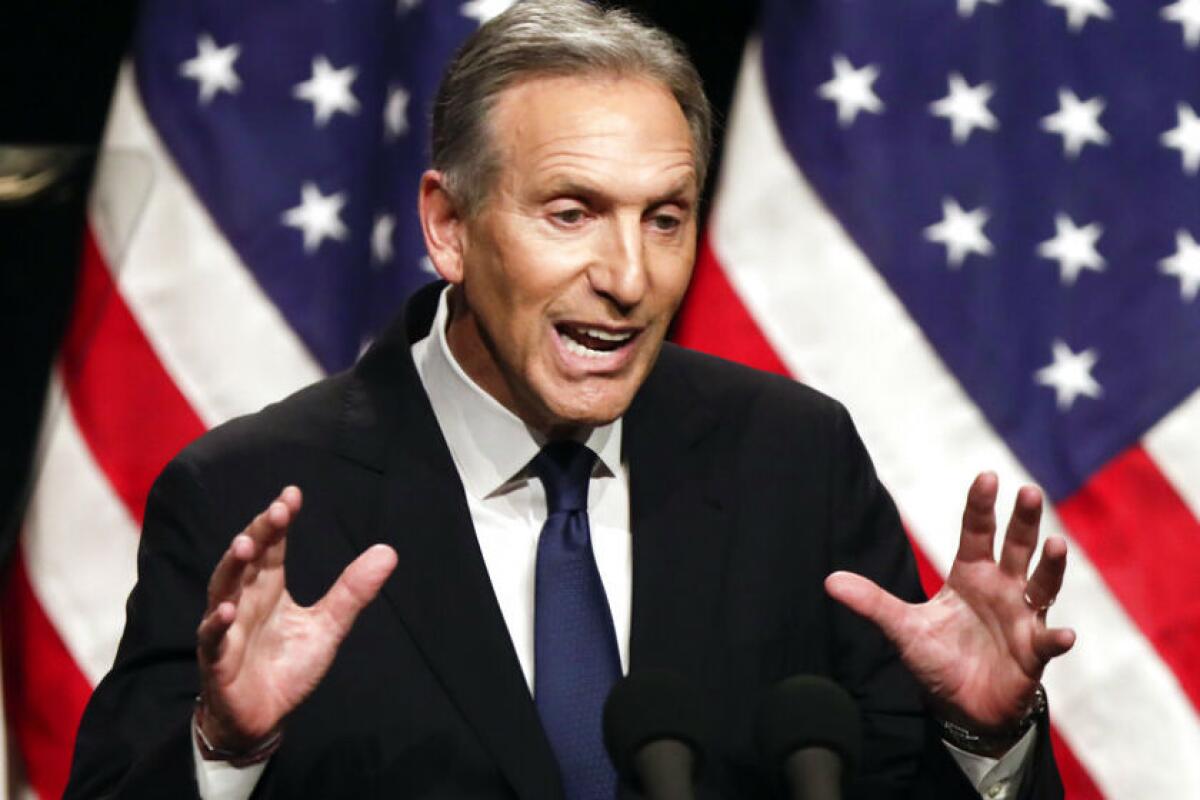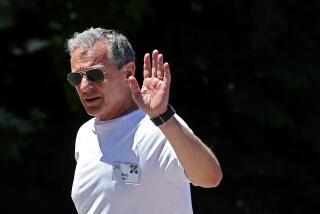Starbucks says Laxman Narasimhan will succeed Howard Schultz as CEO

- Share via
Starbucks tapped Laxman Narasimhan, chief executive of Reckitt Benckiser Group, as its next CEO, choosing a consumer goods veteran to chart a new path after the interim tenure of Howard Schultz.
Narasimhan, 55, will join the coffee giant Oct. 1 while longtime leader Schultz, 69, stays at the helm. The new chief will take over fully April 1 and will join the board, on which Schultz also intends to serve. Before his stint at Reckitt, Narasimhan was an executive at global beverage titan PepsiCo.
The incoming CEO is facing a growing union push, along with struggling sales in China, one of the chain’s key areas for growth. Narasimhan will be working closely with founder Schultz, who’s known as a very hands-on leader.
Starbucks shares were little changed after the close of trading in New York. Through the close Thursday, the stock had lost 27% this year, more than the 17% decline of the Standard & Poor’s 500 index.
Since coming back to the helm in April, Schultz has upended Starbucks, shaking up and restructuring management and introducing a plan to redesign the company’s thousands of cafes for both customers and employees. The specific details of the plan are yet to be announced, with elaboration expected during the company’s investor meeting scheduled for Sept. 13.
Although the company has suspended guidance for the balance of fiscal 2022, its latest earnings results show that diners are willing to keep spending in the key growth market of the U.S. Comparable-store sales in the U.S. jumped 9% in the third quarter, and the company is trying to serve more diners their lattes and cappuccinos faster with improved technology.
Votes tallied Tuesday at two Starbucks stores in Santa Cruz brought a growing union movement at the coffee giant to California.
That strong performance — along with higher menu prices — has helped to offset the sluggishness in China, where the chain has about 5,700 locations. The company says its recovery there will be nonlinear, despite the recent reopening of some of its locations in Shanghai.
The chain has hired a record number of employees this fiscal year, and is trying to convince them that they will be better off without a union. Starbucks also is investing in worker training, new equipment and other operational changes to make jobs easier on its baristas. The moves, along with pay increases, total $1 billion, the company has said.
The chain has raised pay to an average of $17 an hour across the U.S. as of the beginning of August, while also bumping up pay further for managers and more tenured staff. But that hasn’t been enough to stop the union push, which is building across the U.S. with about 200 stores voting to unionize with Workers United.
“We are hopeful that Mr. Narasimhan will end Starbucks’ scorched-earth union-busting campaign and work with all Starbucks partners to make Starbucks a better company and better place to work,” said Michelle Eisen, a barista in Buffalo, N.Y., on behalf of Starbucks Workers United.
“He’s got a lot of work to do,” Bloomberg Intelligence analyst Mike Halen said of Narasimhan. “The rapid unionization of the Starbucks chain is happening way faster than anybody thought.”
There’s also “tons of margin pressure with the commodity inflation, with the decision to increase wages for its employees, and there could be more pressure coming down the pike with the unionization efforts,” Halen said.
Reckitt Benckiser shares fell 5.2% in London after the company announced earlier Thursday that Narasimhan would depart at the end of the month, saying he was pursuing an opportunity in the U.S. The move was seen as a surprise for an executive who joined only in 2019 and was making headway in restructuring the company and unwinding the missteps of former chief Rakesh Kapoor, most notably the highly priced takeover of Enfamil infant formula maker Mead Johnson.
Bloomberg writer Josh Eidelson contributed to this report.
More to Read
Inside the business of entertainment
The Wide Shot brings you news, analysis and insights on everything from streaming wars to production — and what it all means for the future.
You may occasionally receive promotional content from the Los Angeles Times.











